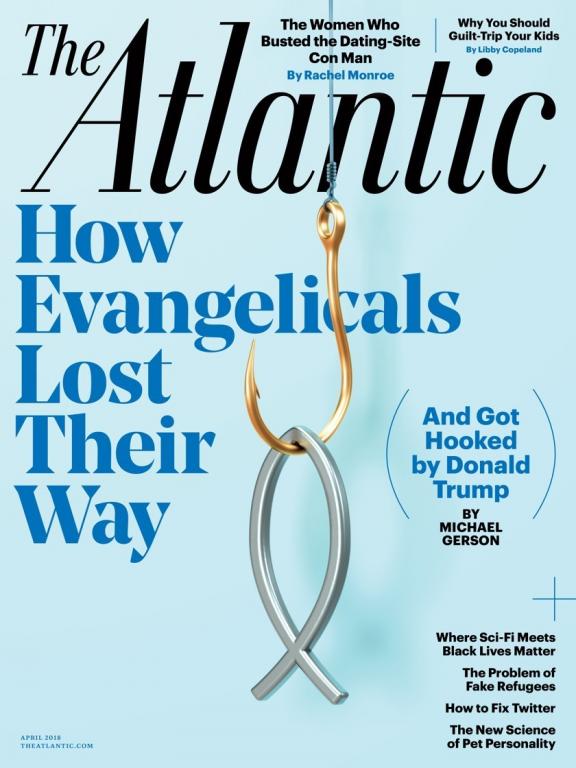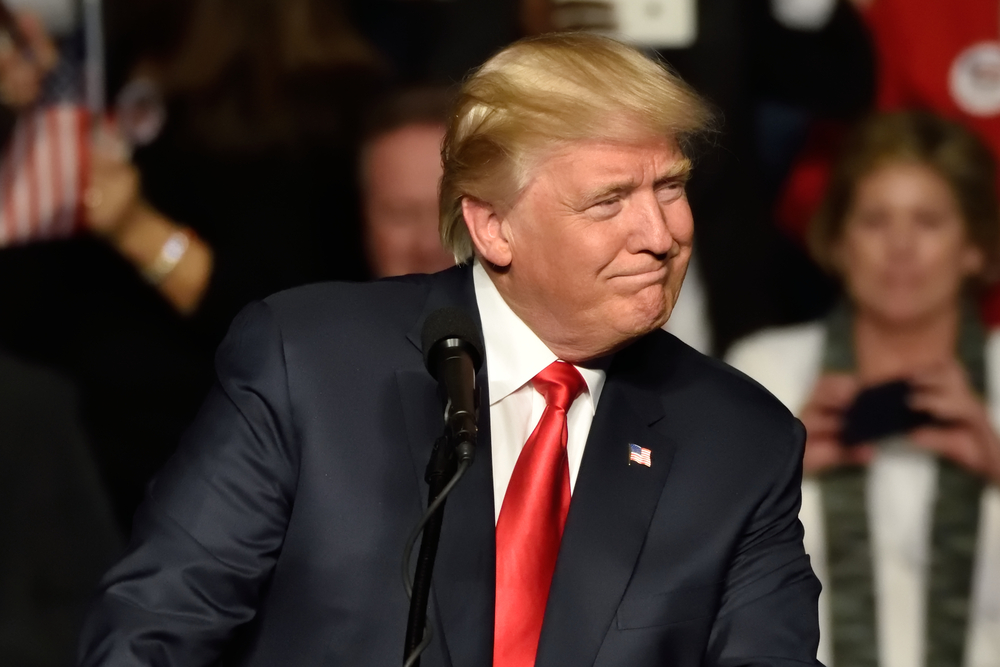Michael Gerson, a former speechwriter for President George W. Bush and graduate of evangelical haven Wheaton College, is a card-carrying conservative Christian. That’s why his new cover story for The Atlantic, all about how evangelicals have screwed themselves over by latching onto Donald Trump, can’t be dismissed as another liberal screed.
His thesis is correct, and it’s something critics of the Religious Right have been saying for years: the Trump-loving Christians are hypocrites who routinely ignore his litany of problems in exchange for lip service and right-wing judicial nominees. In doing so, they’ve turned their once proud brand into something toxic.

… there appears to be no limit to what some evangelical leaders will endure. Figures such as [Jerry] Falwell [Jr.] and Franklin Graham followed Trump’s lead in supporting Judge Roy Moore in the December Senate election in Alabama. These are religious leaders who have spent their entire adult lives bemoaning cultural and moral decay. Yet they publicly backed a candidate who was repeatedly accused of sexual misconduct, including with a 14-year-old girl.
…
The moral convictions of many evangelical leaders have become a function of their partisan identification. This is not mere gullibility; it is utter corruption. Blinded by political tribalism and hatred for their political opponents, these leaders can’t see how they are undermining the causes to which they once dedicated their lives. Little remains of a distinctly Christian public witness.
Gerson also notes that white evangelicals today — and that’s an important distinction since black evangelicals know better than to follow Prophet Trump — are more influenced by Fox News than, say, Rick Warren.
The voter guides of religious conservatives have often been suspiciously similar to the political priorities of movement conservatism. Fox News and talk radio are vastly greater influences on evangelicals’ political identity than formal statements by religious denominations or from the National Association of Evangelicals. In this Christian political movement, Christian theology is emphatically not the primary motivating factor.
Gerson’s most damning commentary may be a part where he expresses frustration that evangelical leaders didn’t even abandon Trump following his both-sides-ism after Charlottesville.

Here is the uncomfortable reality: I do not believe that most evangelicals are racist. But every strong Trump supporter has decided that racism is not a moral disqualification in the president of the United States. And that is something more than a political compromise. It is a revelation of moral priorities.
That’s worth remembering long after this administration is out of power. Evangelical Christians had the chance to stand up for what’s right, and they failed. Again. As usual.
One problem with Gerson’s piece is that he suggests a handful of evangelical leaders who aren’t on the Trump train, and who provide a more positive path forward for the faith.
Like Tim Keller, “the most influential advocate of a more politically and demographically diverse evangelicalism.” Sure, but Keller also co-founded The Gospel Coalition, a website that routinely publishes articles promoting faith-based bigotry and ignorance. Like this piece all about how if we just describe gay sex acts, people will be too disgusted by it to choose being gay. Or this anti-transgender piece from last week. Or this one, written by a “former” lesbian who “used men’s bathrooms and dressing rooms.” (I know, I know, it makes no sense.) That Tim Keller is supposed to be a role model.
Or how about Russell Moore, the Southern Baptist Convention leader who “demonstrates how moral conservatism can be both principled and inclusive”? Inclusive?! Moore was one of the initial signers of the Nashville Statement which etched Christians’ anti-gay bigotry in stone, denied the very existence of trans people, and declared that those who supported LGBTQ rights weren’t “faithful Christians.”
Or what about Francis Collins, the evangelical who directs the National Institutes of Health and “shows the deep compatibility of authentic faith and authentic science”? While his science credentials are impeccable, he’s arguably done more to blur the lines between faith and science than anyone else, which some critics rightly claim is intellectually dishonest. If there’s anything positive to say about him, it’s that he’s a professional who doesn’t appear to blur those lines while working for the government.
The point is: Even many of the “good” evangelical leaders Gerson mentions have their own serious flaws. And that’s in large part due to problems with evangelical beliefs.
Even before Trump, we saw what happened when evangelical Christians got power. They became an obstacle to scientific progress, made life worse for women trying to take control of their own bodies and LGBTQ people simply wanting equal rights, and played up the Persecution Complex. That all happened while Gerson was in the White House.
Donald Trump didn’t lead evangelicals off a cliff; they were heading in that direction on their own. Trump’s just pushing them off even faster, and they’re kissing his ass on the way down.
Trump has exposed the most problematic evangelical beliefs. But even without him, it’s not like decent people should have been following their lead.
(Bottom image via Shutterstock)




It’s Moving Day for the Friendly ..."
It’s Moving Day for the Friendly ..."
It’s Moving Day for the Friendly ..."
It’s Moving Day for the Friendly ..."